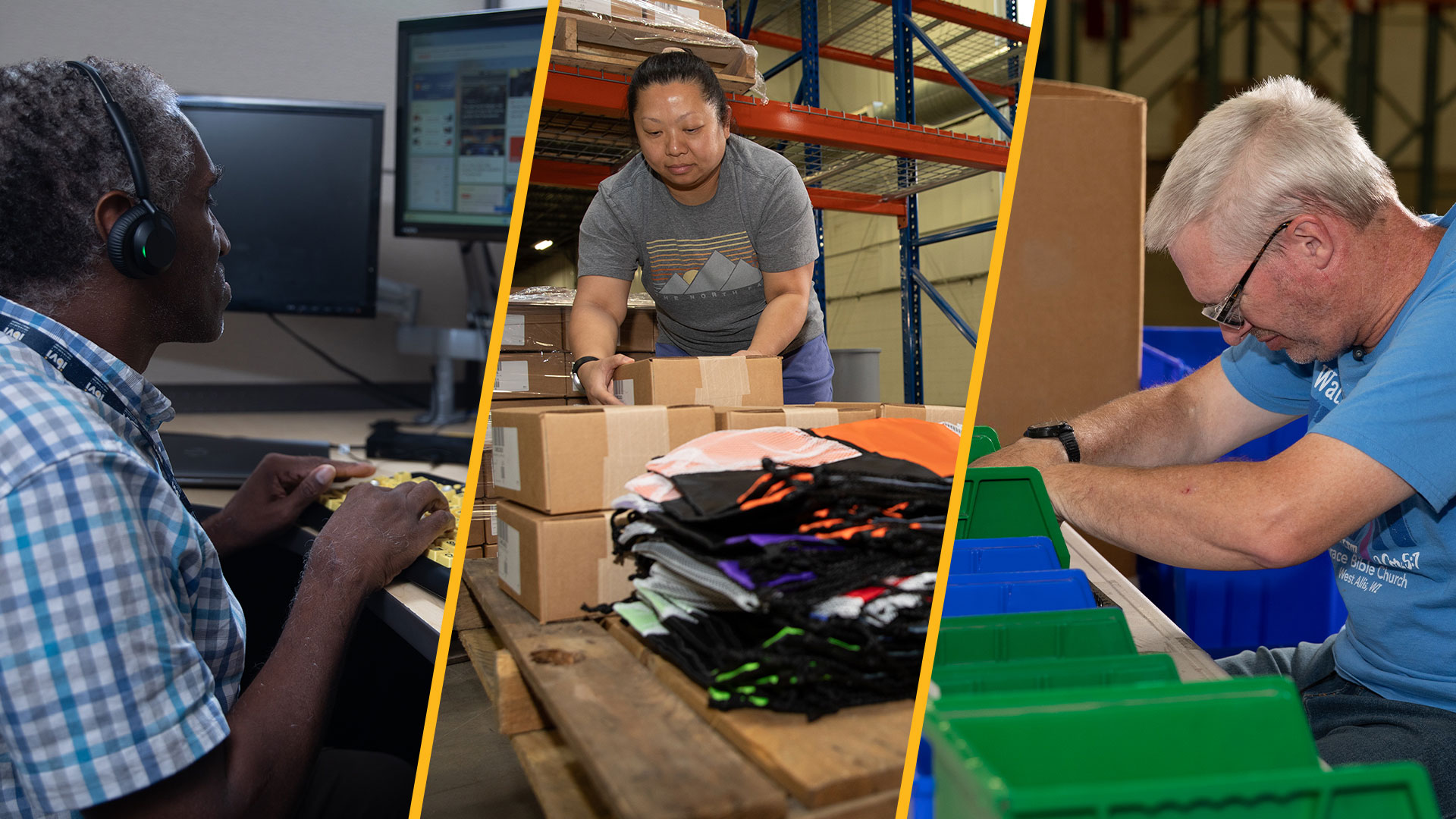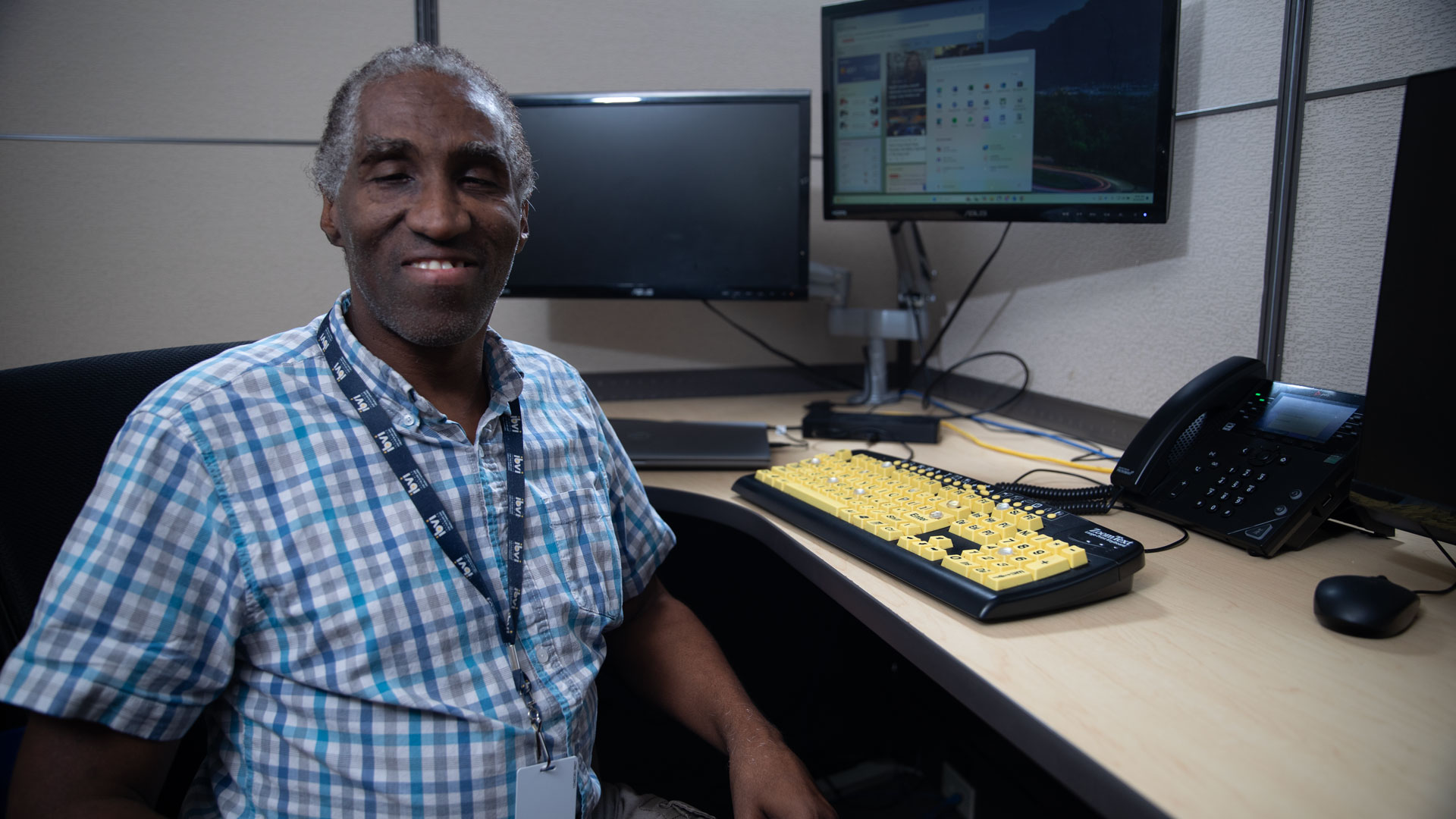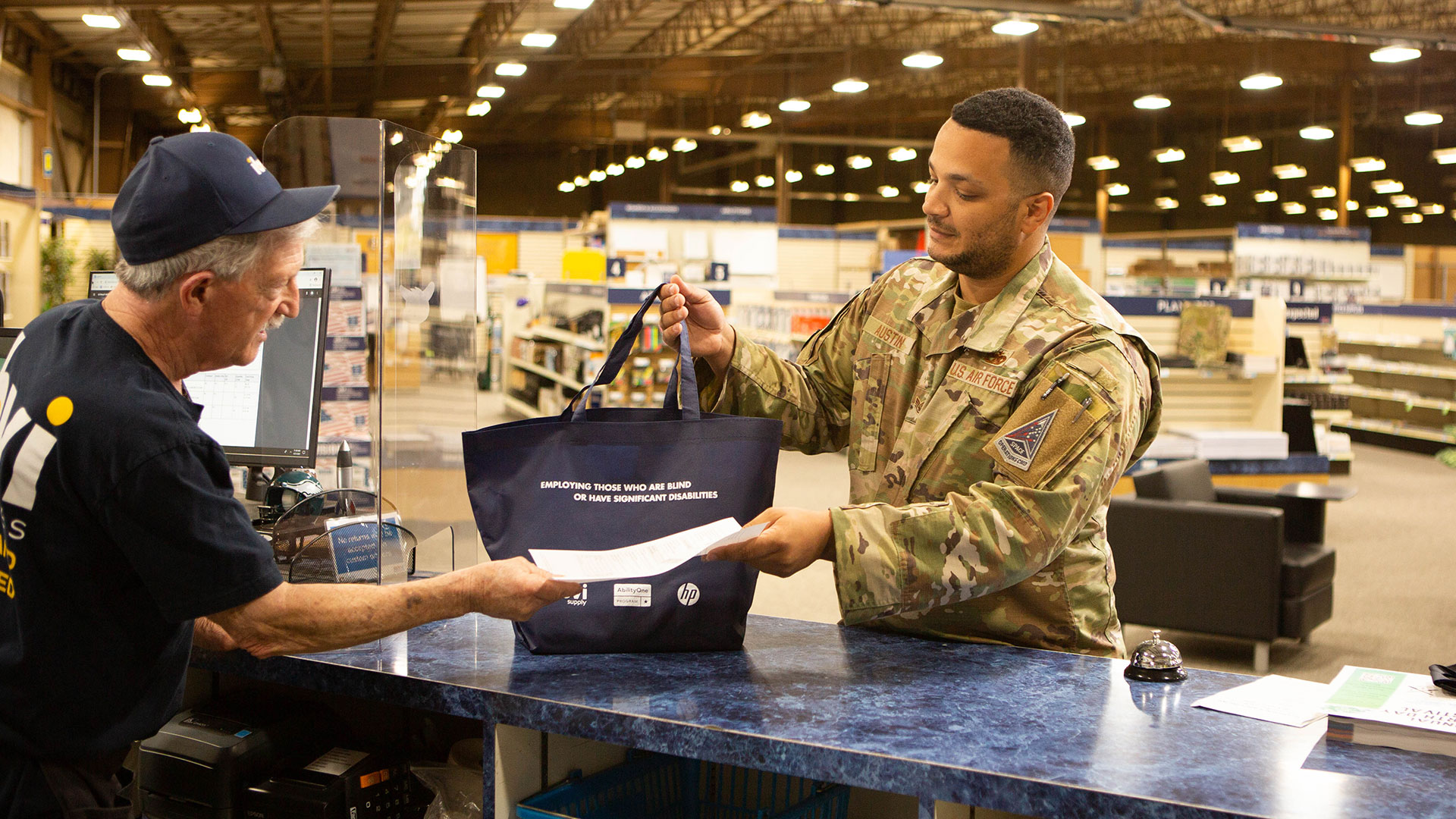How IBVI Equips All Our Employees for Success
Steve Jobs once said “What’s important is that you have a faith in people, that they’re basically good and smart, and if you give them tools, they’ll do wonderful things with them.”
Even a technological pioneer knew there was a balance between finding the right people for the job, and giving them the resources they need to do the job right. At IBVI, where we employ more than 100 people who are blind or visually impaired, we believe that anyone can succeed at their job if they have a personal commitment and the right tools and training.
When people learn about IBVI, sometimes they expect that our employees are relegated to the factory floor where they’re doing simple tasks, something that “anybody could do”. In reality, our blind and visually impaired employees—which make up roughly half of our staff—are an integral part of every department in the company.
Let’s take a tour, if you will, of IBVI and see how we meet the needs of people with disabilities regardless of the role they play.
Reception Desk
Right when you walk in the door of our West Allis, Wisconsin headquarters, you’ll likely be greeted by Cindy at our reception desk. Cindy uses a variety of tools to complete her job, but what shines through is her warm personality and organizational skills. She helps get visitors and team members where they need to go in the building, having a keen knowledge of all the departments and staff members.
Human Resources
Speaking of getting to know team members, Jeff Young is one of our Human Resources Representatives, and he works to help make sure things run smoothly within IBVI when it comes to staffing. Sitting at a computer most of the day, Jeff is a master at a technology called “Job Access With Speech” (JAWS). It reads what’s on screen to him at a lightning-fast speed so he can navigate websites and emails.
“With JAWS or other screen reading technology, you use keyboard navigation, and people don’t realize how much you can do with your computer just by controlling the keyboard,” said Jeff in a 2019 interview with FOX6 Milwaukee. “A lot of employers think that they can’t hire blind people or there’s a lot of fear there. But there are ways to get JAWS and diversify your workforce by hiring blind or visually impaired people.”
With his understanding of people’s needs and his grasp of the mission of IBVI, Jeff also now helps support our local advocacy team. Along with a few others, he helps speak out for legislation that supports people who are blind or visually impaired.
Customer Service
Much like seeing Cindy at the reception desk, it’s meaningful to connect with people who are blind or visually impaired at your first interaction with the organization. That’s why it’s important for our customer service team to include people who are blind or visually impaired.
Daniel Jones, our Customer Service Operations Manager, understands the importance of training his team to be an excellent first impression:
“We are the first line that the customer comes to, whether good or bad. When something is wrong, or when the customer is upset, my team meets them where they’re at. They do a challenging job and they do it with professionalism and integrity. Sometimes they take the brunt of the customer’s frustration, and that’s not always easy to do. I want them to know that they are supported, and that they’ll always have that time to breathe, relax, laugh, and be themselves.”
They use some of the same screen reading technology in their desk jobs, but for the customer service team, it’s about training them to handle customer questions and concerns with grace and patience. It’s also about knowing how to find the answer and solve their problem.
“We’re teaching what we do and how we do it, but also teaching them computer skills and tech skills they may need, along with customer service skills and basic sales.”
Sales
We also have members of the team who are out “on the road”, if you will. They’re salespeople who travel to trade shows, base supply centers, and other events to share the details of the mission of IBVI.
William Vaughn is one of them, and he has a visual impairment. He explains that it helps him tell the story of IBVI from personal experience. He also shares that he used to feel like he couldn’t share that he needed special resources for his roles because he didn’t want special treatment. But now he knows that there’s power in asking for what you need.
“If you level the playing field, you’ll be surprised at what people can do,” he said. “If they have the tools and training they need, you’re going to see people succeed.”
Hand Assembly
Of course we do have people who are blind or visually impaired on our factory floor that do hand assembly, like Jeff Spantikow. In a FOX6 interview in 2019, he showed the process of making thousands of pens a day to supply to our customers. Despite his visual impairment, he has the training and experience to produce at a high level, but he also gives credit to the machinery he uses: “We’re very blessed to have it.”
Our CEO CJ Lange often explains how critical it is to put people in a place to succeed. He says it’s all about “tools, training, and technology”. As a company that seeks to not just employ but to also empower people who are blind or visually impaired, it’s not enough to “give them something to do”. Rather, we want to put them in a position where they feel valued and accomplished. That helps us manufacture better products, have a better culture, and ultimately fulfill our mission.


